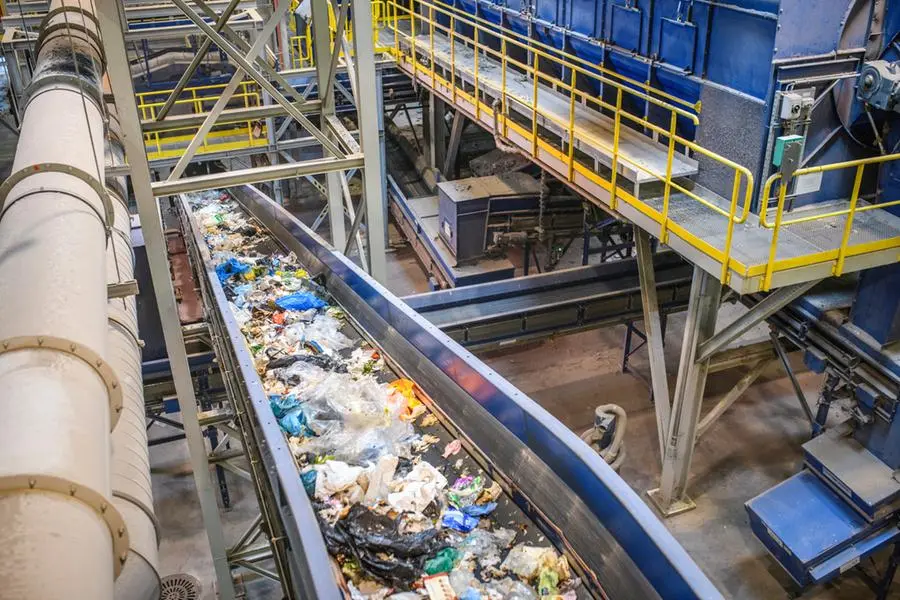PHOTO
Ms Oluwaseun Fasuhanmi, the Managing Director, Mottainai Recycling, in this interview with NURUDEEN ALIMI, speaks on how the company has been at the forefront of sustainable waste management, leveraging digital innovation to create efficient, transparent and environmentally responsible waste solutions.
How has digitalisation impacted sustainable waste management at Mottainai Recycling?
Digitalisation has revolutionised our approach to sustainable waste management. By integrating digital tools into an all-in-one solution, we have enhanced our ability to track waste generation, optimise collection routes, automate scheduling and provide transparent billing.
Additionally, we have incorporated features for awareness, enforcement and compliance, which have been crucial in improving our operational efficiency and supporting our sustainability goals.
Can you elaborate on the specific benefits this all-in-one digital solution offers to government agencies involved in waste management?
For government agencies, our all-in-one digital solution offers a comprehensive approach to regulation and oversight. The platform provides real-time data for better monitoring of waste management practices and enables data-driven policy-making. It also streamlines processes like scheduling, pickups and billing, reducing administrative burdens.
Furthermore, the enforcement and compliance features ensure that regulations are adhered to, with automated alerts for violations and tools for efficient reporting and documentation.
What about independent waste operators? How can they benefit from this integrated digital solution?
Independent waste operators gain significantly from our integrated digital solution. The tool includes GPS tracking and route optimisation to reduce fuel consumption and travel time. Automated scheduling minimises errors and delays, enhancing service reliability. With digital records providing verifiable proof of pickups, customer disputes are minimised. Moreover, the awareness and compliance features help operators adhere to regulations, ensuring smooth operations and improved customer satisfaction.
It seems we have most stakeholders involved. How does this digital solution support companies aiming to achieve their Sustainable Development Goals (SDGs)?
Companies striving to meet their SDG targets can leverage our all-in-one digital solution to monitor and manage their waste more effectively. Real-time data on waste production helps identify areas for reduction and recycling, directly supporting sustainability initiatives.
Automated reporting ensures compliance with environmental regulations and provides valuable insights for continuous improvement. Additionally, the awareness feature educates staff on best practices, aligning business operations with broader sustainability goals and driving both environmental and economic benefits.
What are the challenges you have encountered in implementing this digital solution in waste management?
Like any significant changes, we are faced with challenges. The primary challenges include high initial investment costs, technical integration with existing systems and ensuring data security. Overcoming these requires careful planning, selecting scalable solutions and partnering with experienced vendors.
Additionally, staff training and stakeholder engagement are crucial for change management especially to ensure smooth adoption and maximise the benefits of the digital tools. Addressing these challenges head on ensures the long-term gains in efficiency, sustainability and regulatory compliance make the investment worthwhile.
What steps can government agencies, independent waste operators and companies take to start their digital transformation journey in waste management using your solution?
First, it is essential to conduct a comprehensive assessment to understand the specific needs and opportunities for digitalisation. Developing a clear strategy that aligns with sustainability goals is crucial.
Investing in scalable and compatible technologies, while planning for phased implementation, helps manage costs and integration challenges. Training staff and engaging stakeholders early in the process ensure smooth adoption and maximise the benefits. Finally, prioritising data security and compliance with privacy regulations is vital to protect sensitive information.
What is your vision for the future of sustainable waste management?
My vision is a future where digitalisation and innovation drive sustainable waste management practices globally. By harnessing the power of technology through all-in-one solutions, we can create efficient, transparent and accountable systems that not only manage waste effectively but also contribute to broader environmental and societal goals. Collaboration across government agencies, independent operators and businesses is key to achieving this vision and creating a more sustainable future for all.
Copyright © 2022 Nigerian Tribune Provided by SyndiGate Media Inc. (Syndigate.info).




















